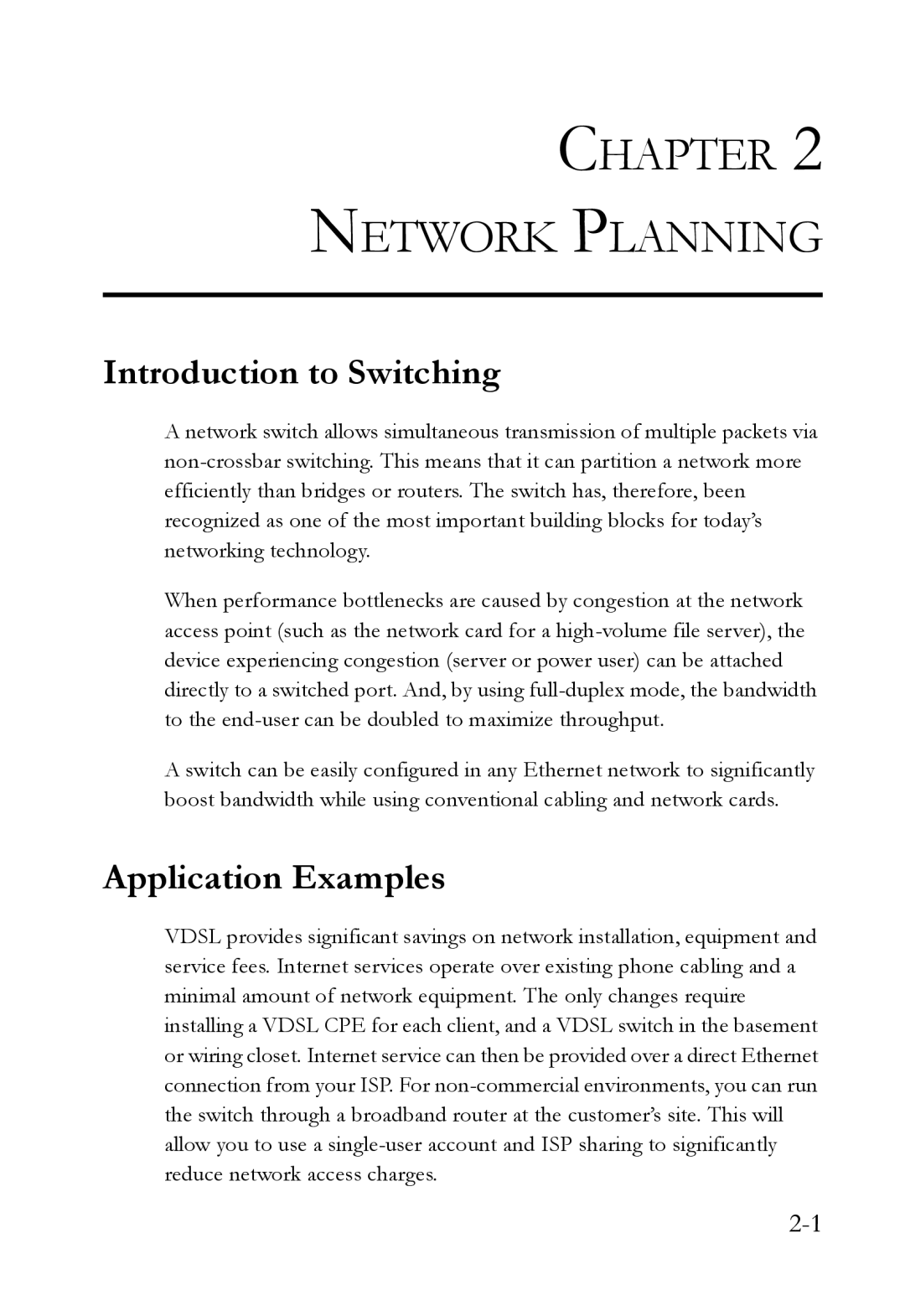CHAPTER 2
NETWORK PLANNING
Introduction to Switching
A network switch allows simultaneous transmission of multiple packets via
When performance bottlenecks are caused by congestion at the network access point (such as the network card for a
A switch can be easily configured in any Ethernet network to significantly boost bandwidth while using conventional cabling and network cards.
Application Examples
VDSL provides significant savings on network installation, equipment and service fees. Internet services operate over existing phone cabling and a minimal amount of network equipment. The only changes require installing a VDSL CPE for each client, and a VDSL switch in the basement or wiring closet. Internet service can then be provided over a direct Ethernet connection from your ISP. For
